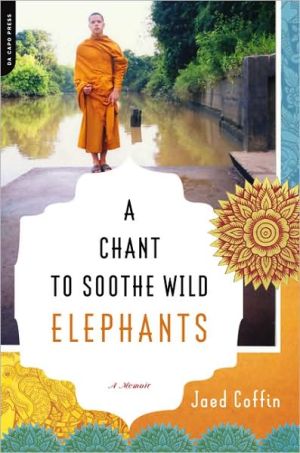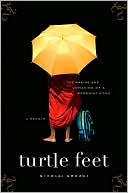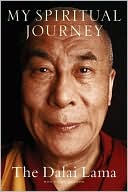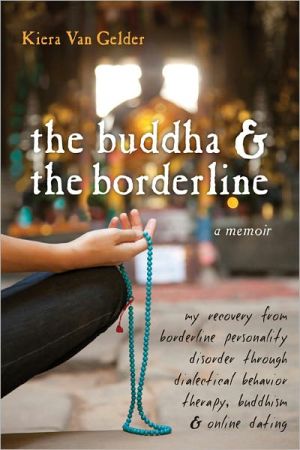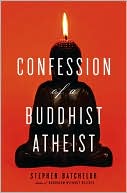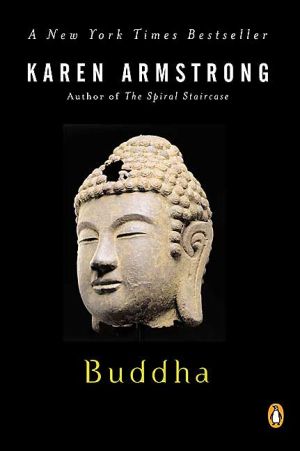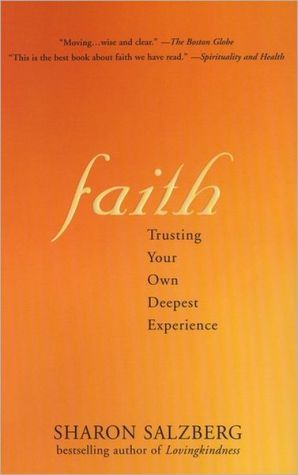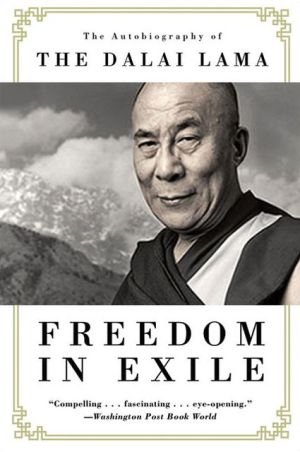A Chant to Soothe Wild Elephants
Six years ago at the age of twenty-one, Jaed Muncharoen Coffin, a half-Thai American man, left New England's privileged Middlebury College to be ordained as a Buddhist monk in his mother's native village of Panomsarakram—thus fulfilling a familial obligation. While addressing the notions of displacement, ethnic identity, and cultural belonging, A Chant to Soothe Wild Elephants chronicles his time at the temple that rain season—receiving alms in the streets in saffron robes; bathing in the...
Search in google:
A simple story of a rain season in Thailand and a young man at the intersection of two cultures Magill Book Reviews Coffin prefers to show rather than tell, to understate rather than over determine. He writes with a deft hand, creating crystalline images and lovely prose, as he attempts to traverse the cultural abyss between his world in the United States and the world of his beloved grandfather.
\ Body + Soul Editor's PicksThis mix of coming of age, falling in love, and culture shock is told in a direct, delicate, and moving style.\ \ \ \ \ Brunswick Times Record[Coffin] has a remarkable ability to render both the details of the external landscape and the complexities of his own internal architecture with clarity, compassion, and honesty. It is this honesty, which often manifests as self-effacing humor and willingness to call into question his own motivations, that gives Coffin's book much of its emotional depth and resonance.Coffin conveys the texture of these experiences with vividness and a keen eye for detail.And he conveys the stages of his growing realization that he does not fully belong to the culture he has sought to join with such high hopes in clear, direct prose.\ \ \ Cleveland Plain Dealer[A] gentle, engaging memoir.\ \ \ \ \ Jay PariniA Chant to Soothe Wild Elephants has the kind of hard, shimmering, simple prose that set Hemingway apart as a writer to watch in his first book of stories. Jaed Coffin is not only a writer to watch, however. As he demonstrates in this lively memoir, he's a writer who has already achieved that rare thing: a singular voice, and one that satisfies the ear with its quiet music, that feeds the eye with image after image of life. (Jay Parini, author of Robert Frost: A Life)\ \ \ \ \ Julia AlvarezJaed Coffin takes us on the eternal quest which Joseph Campbell described as the journey of the hero in search of enlightenment. But A Chant to Soothe Wild Elephants is also a touching memoir of growing up in dual cultures with a foot in both First and Third Worlds. Coffin takes us inside those worlds and on that quest with such honesty, skill, humor, and intimacy that we can't help but follow. A rare look into a culture from an insider/outsider's point of view. (Julia Alvarez, author of How the Garcia Girls Lost Their Accents)\ \ \ \ \ Los Angeles Times Book ReviewA simple story.Well worth the journey.\ \ \ \ \ Magill Book ReviewsCoffin prefers to show rather than tell, to understate rather than over determine. He writes with a deft hand, creating crystalline images and lovely prose, as he attempts to traverse the cultural abyss between his world in the United States and the world of his beloved grandfather.\ \ \ \ \ PopMatters.comA Chant to Soothe Wild Elephants shows where a journey of the mind, body, and spirit can take you, and how a search for answers can end, successfully, with acceptance of ambivalence and peace with the unknown.Coffin writes in short, crisp, often powerful sentences, much like his literary idols Jack London and Ernest Hemmingway. The style matches the monk way of life-quiet, simple, clean. There is no flowery language or effusive descriptions, and Coffin's prose never veers from its single-minded focus on his cultural identity quest.You will thoroughly enjoy this well-crafted, carefully-told story.\ \ \ \ \ Shambala SunThis coming-of-age story.is a chronicle of quiet restlessness and cultural angst.Coffin's hard-won self-awareness never comes across as self-important, and he describes his inner life with a spare, precise honesty that is refreshing. Like the best memoirs, A Chant to Soothe Wild Elephants uncovers more questions than it answers.\ \ \ \ \ Publishers WeeklyIn this affecting memoir, Coffin relates tales from his childhood and the complications that arise from being the offspring of an interracial couple in the late 1970s. Coffin's father was a U.S. soldier who met his mother in Taiwan during the Vietnam War. Not long after they venture to America to start a new life, Coffin's parents separated and he and his younger sister, Tahnthawan, moved to Maine with their mother. Coffin was taken back to his mother's Taiwanese village several times during his childhood, and, on one occasion, encountered an elderly Buddhist priest who claimed the boy should come and live as a monk. Years later as a university student, he returned to the village to become a monk in the hopes of finding himself and his true identity. He meditated and learned prayers and chants, but often found himself alone in his room, sleeping on the floor next to his Buddha statue until he begins to question whether he is meant for the life of a monk. In heartfelt prose, Coffin beautifully captures his journey, both geographical and internal. (Feb.)\ Copyright 2007 Reed Business Information\ \ \ \ \ KLIATTJaed grew up in America, the child of a mother from Thailand and a Caucasian, American father, who left the family when Jaed was two years old. Every year, Jaed went with his mother and sister to Thailand, to visit his grandfather and connect with that part of his heritage. As a college junior, he decided to go to Thailand to his mother's village and become a monk for some months, and then use the experience for an academic career in philosophy. A Chant to Soothe Wild Elephants is the story of this experience. Most young men in Thailand become monks for a short period of time as part of their coming-of-age ritual, and Jaed's intention is treated as normal by his Thai family. His rudimentary command of the language helps, and he does meet other monks who are able to speak some English. This is a colorful account of his experience, from his first learning to wear his saffron robe, to his begging for food, his shaved head, learning to meditate, journeying to remote places. Oddly, for a tale of being a monk, Jaed manages to fall in love with a young girl who knows his family, and this romance pulls him ever closer to his Thai heritage, forcing him to choose whether to return to America or stay in the village. This story will have a lot of appeal for older YAs and adults who are interested in religious experiences and journeying to discover more about oneself. Reviewer: Claire Rosser\ \ \ \ \ Kirkus ReviewsLow-key memoir of the author's search for identity. Born to a Thai mother and American father, Coffin struggled with his mixed ethnicity through much of his childhood and adolescence, even though his father left the family before the author's second birthday. Biannual trips to his mother's home village of Panomsarakram, as well as his discovery of Buddhist philosophy in high school, increased his desire to connect more closely with his mother's cultural heritage. While studying philosophy at Middlebury College, Coffin began to consider his half-Asian ethnicity as a vital part of his self-identity: "I decided to think of myself as an Asian and a Thai . . . it gave me a vague excuse to feel unique, exotic, and enigmatic." In the spring of his junior year, the author received an internship grant to travel to his mother's village and live for a few months as a monk at the local Buddhist temple. Coffin recalls his spiritual quest in simple, unadorned prose, as he questions his motivations and attempts to achieve the devoted serenity of his fellow monks. After his initiation ceremony, the author embarked on the training required of all new initiates: learning the eight precepts of Buddhism, meditation, ritual chants, maintaining the gardens and lotus ponds, etc. The rigorous labor soon dampened his spirits, and he began to question the monks' lifestyle: "Rather than chasing after some Ozymandian fantasy, they were content to settle into a balanced state of decay." Seeking enlightenment, Coffin accompanied his mentor Narong-who taught meditation in exchange for English lessons-on a quest into the forest, where they met the "forest monks" and received alms and gave blessings at various smallvillages. Unfortunately, the author found little more than banal observations-"This all seemed so unproductive: all this believing in things that you couldn't see, and searching for knowledge that you'd never be able to use"-and he returned to Panomsarakram, left the temple and spent the remainder of his summer teaching English at the local high school, socializing with the villagers and pining after Lek, a local girl with whom he had spent time during his childhood trips. The author's journey is admirable, but his thin memoir fails to relate any sense of spiritual or intellectual development. Agent: David McCormick/McCormick & Williams Literary Agency\ \
